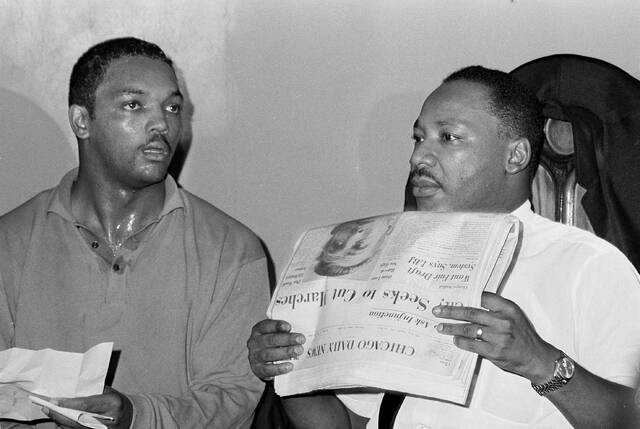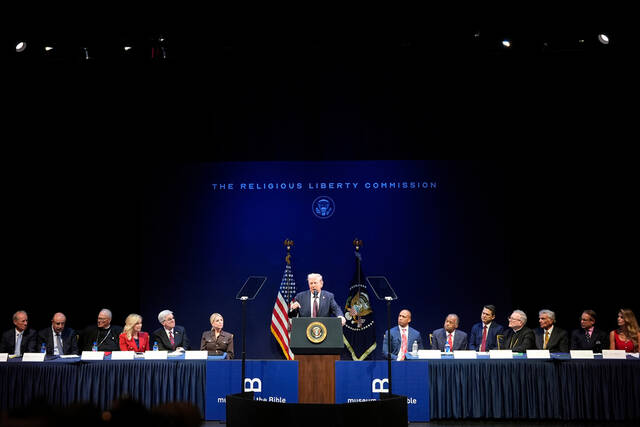In an era marked by a troubling resurgence of antisemitism and misinformation, it has never been more critical for educators to work collaboratively and purposefully to ensure that students are learning not only the history of the Holocaust but also how its lessons apply to the world today.
In June, I had the privilege of attending the Jewish Foundation for the Righteous (JFR) Alfred Lerner Summer Institute for Teachers, a powerful week of learning alongside 23 fellow educators from schools and Holocaust museums across the country. Together, under the guidance of some of the world’s foremost Holocaust scholars, we engaged in deep, challenging conversations about one of the darkest chapters of human history and how to teach it effectively.
The program, led by JFR Executive Vice President Stanlee Stahl, covered a wide array of critical topics: the historical background of the Holocaust, the roots of anti-Judaism and antisemitism, the rise of Nazism, obstacles to escape, medical ethics during the Third Reich, the Nazi regime’s “New Order,” German killing methods, limits of collaboration, Jewish rescue efforts and the alarming rise of contemporary antisemitism. Just as importantly, the program directly addressed the pedagogical challenges that come with teaching this subject in classrooms filled with diverse learners.
As someone who has participated in numerous teacher training programs focused on Holocaust education, I found this one particularly impactful, not only because of the world-class experts leading our sessions but because of how attuned they were to the needs of teachers. Every presentation sought to deepen our historical understanding while also equipping us with tangible strategies for bringing this knowledge back into our classrooms.
A defining strength of the program was its emphasis on us, as educators, working together. Despite the emotional and intellectual heaviness of the subject matter, the JFR created space for us to come together and work through it. Armed with markers, paper and a shared mission, we broke into small groups to identify key challenges and brainstorm innovative solutions. We exchanged strategies for increasing student engagement, debated lesson structure and shared resources. Each group presented their findings, and the resulting visuals were photographed and distributed to all participants. I returned to Pittsburgh with 81 pages of notes, and even more inspiration, from this passionate, insightful community of educators.
Now comes the real test: How do we translate these lessons into practice, particularly as the urgency of Holocaust education increases?
One key takeaway for me is the importance of teaching about contemporary antisemitism, especially in light of current events. While Pennsylvania does not mandate Holocaust education, it is strongly recommended, and many schools, including mine, have made it a priority. But teaching about the past is no longer enough. We must also equip students with the tools to recognize and confront antisemitism as it manifests today: online, in political discourse, in communities and even in schools.
In my English language arts classes for seventh- and eighth-graders, we examine the Holocaust through literature. Students begin by studying historical context and then engage with firsthand accounts like diaries and testimonies, including those shared in “Salvaged Pages” by Alexandra Zapruder. These personal narratives are powerful. They humanize history, allowing students to connect emotionally and intellectually with stories that might otherwise feel too distant or abstract.
Inspired by what I learned at the program, I also plan to expand our unit to more deeply explore the role of the Righteous Gentiles — the rescuers — who risked their lives during the Holocaust to save others. The JFR’s mission to support Righteous Gentiles in 34 countries reminds us that even in the darkest times, there were individuals who chose courage and compassion over complicity. These stories matter, not just because they uplift, but because they teach. They show students that even in in times of horror, there were individuals who stood up for humanity.
Educators are on the front lines of helping students not only understand the past but also develop their moral codes that will guide them through their lives. Helping our students understand the Holocaust, its causes and its consequences, is integral to their developing how they will approach issues related to antisemitism, racism and hate.
I am deeply grateful for the opportunity to attend the JFR Alfred Lerner Summer Institute. I learned from renowned scholars, dedicated staff, and some of the most thoughtful educators I’ve ever met. The experience was truly transformative, and the lessons I took with me will shape my teaching for years to come.
Now more than ever, we must stand united in the effort to educate the next generation about the Holocaust and to confront antisemitism wherever it appears. The stakes are too high for anything less.
Hallie Leach teaches English and literature at St. Therese School in Munhall and is a JFR Alfred Lerner fellow.








